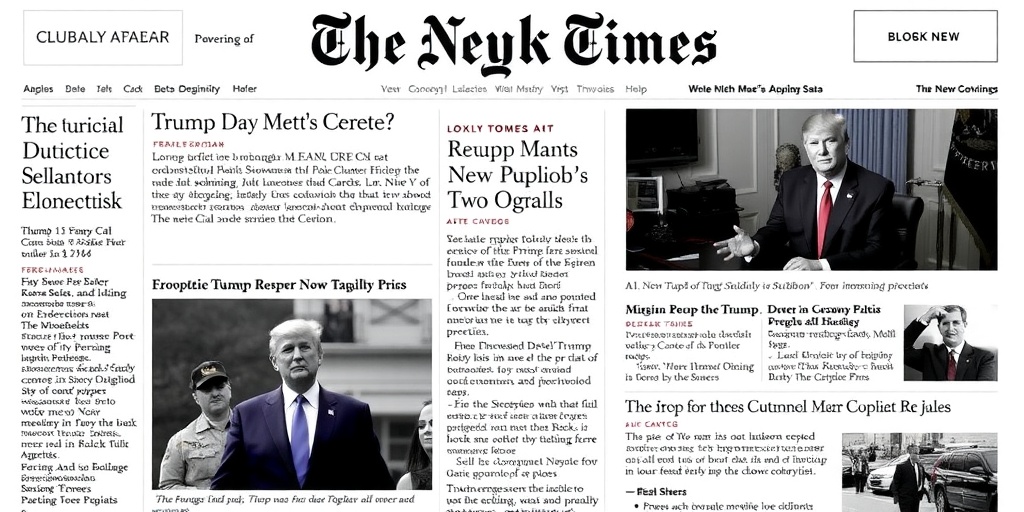Now Reading: Judge Rules Alabama Can’t Prosecute Out-of-State Abortion Aiders
-
01
Judge Rules Alabama Can’t Prosecute Out-of-State Abortion Aiders
Judge Rules Alabama Can’t Prosecute Out-of-State Abortion Aiders

On Monday, a federal judge ruled that Alabama cannot prosecute healthcare providers and reproductive health organizations for assisting patients in traveling out of state to obtain abortions. This decision follows the strict abortion ban that Alabama has enacted, which is among the most severe in the United States. The state’s Attorney General, Steve Marshall, a Republican, had previously suggested that doctors could face charges of criminal conspiracy for merely recommending abortion services outside of Alabama.
This controversial stance led multiple clinics and healthcare professionals to challenge Marshall’s comments in court, arguing that they infringed on their First Amendment rights and the constitutional right to travel. The Biden administration’s Justice Department joined the legal battle, contending that any threatened criminal prosecutions would violate fundamental principles of American constitutional law.
In a 131-page opinion, Judge Myron H. Thompson of the Middle District of Alabama, located in Montgomery, determined that prosecuting doctors or reproductive health organizations in such a manner would violate both the First Amendment and the right to travel. He articulated a clear delineation in his judgment: while Alabama can prohibit certain actions within its jurisdiction, it cannot impose its laws and values upon individuals who seek lawful medical care in other states.
Judge Thompson further illustrated his point by creating a hypothetical situation in which a group of Alabamians could face prosecution for participating in casino-style gambling in Las Vegas, an activity that is illegal in Alabama. He cautioned that such enforcement of laws extending beyond state borders could have far-reaching implications.
The implications of this ruling come as travel to other states for abortion services has surged since the Supreme Court’s reversal of Roe v. Wade. According to the research organization Guttmacher Institute, over 171,000 patients traveled for abortions in 2023—an increase compared to the approximately 73,100 patients who sought abortions out of state in 2019.
Marshall defended his position in court, maintaining that he possessed the jurisdiction to prosecute conspiracies occurring in Alabama, irrespective of the legality of abortion in other states. His argument indicated that the right to travel does not inherently provide individuals the right to commit a criminal conspiracy, implying that if someone attempted to orchestrate such a conspiracy, it could lead to prosecution in Alabama.
This legal battle is emblematic of a broader national landscape in which Republican-led states, such as Alabama, continue to implement and uphold highly restrictive abortion laws. Some states are actively devising legal strategies to prevent their residents from receiving assistance in obtaining abortions in more permissive states. Louisiana, for instance, passed a law designating abortion pills as dangerous controlled substances, leading to charges against a Louisiana mother and a New York doctor for violations of the state’s abortion ban. Notably, New York has declined to extradite the doctor, showcasing the growing legal complexities surrounding this issue.
In another development, a New York county clerk recently obstructed Texas from pursuing legal action against the same doctor, amid state laws designed to safeguard abortion providers from penalization when using telemedicine to prescribe medications across state lines.
The ruling from Alabama is likely to be challenged on appeal, as the judicial system continues to navigate the shifting landscape following Roe’s demise. In a related note, the Supreme Court recently granted temporary permission for emergency abortions in Idaho, although it did not directly address the state’s abortion ban.
Alabama remains a focal point in the ongoing debate regarding reproductive rights, with its constituents having approved a constitutional amendment in 2018 aimed at protecting the rights of unborn children. This amendment has contributed to Alabama’s reputation for having one of the most stringent abortion restrictions in the nation, allowing for felony charges against doctors that could result in prison sentences of up to 99 years. The state’s anti-abortion amendment was also central to a State Supreme Court decision last year, which concluded that embryos could be classified as children, a ruling that momentarily halted fertility treatments within Alabama.
The clinics challenging Marshall’s assertions included the Yellowhammer Fund, which aids abortion access in the Deep South, alongside the West Alabama Women’s Center, now known as WAWC Healthcare, and notably, Dr. Yashica Robinson, an obstetrician-gynecologist based in Huntsville. The plaintiffs disclosed that they had either ceased their operations related to abortion funding or had started avoiding inquiries about assisting patients in seeking out-of-state care. According to the court ruling, these clinics collectively receive as many as 95 inquiries per week from individuals seeking help.
Kelsea McLain, the health care access director for the Yellowhammer Fund, expressed profound relief at the ruling, stating, “Every day was agonizing.” She emphasized that the decision affirms their ability to provide necessary assistance to individuals seeking reproductive care.
Marshall’s office has yet to release a public statement regarding the ruling. Importantly, Judge Thompson’s decision aligned with observations made by Justice Brett Kavanaugh in a 2022 opinion, which suggested that a state could not constitutionally restrict a resident’s ability to travel for abortion services.
As the implications of this ruling unfold, the intertwining issues of reproductive rights, state constraints, and individual freedoms continue to be at the forefront of national discourse.
Stay Informed With the Latest & Most Important News
Previous Post
Next Post
-
 01New technology breakthrough has everyone talking right now
01New technology breakthrough has everyone talking right now -
 02Unbelievable life hack everyone needs to try today
02Unbelievable life hack everyone needs to try today -
 03Fascinating discovery found buried deep beneath the ocean
03Fascinating discovery found buried deep beneath the ocean -
 04Man invents genius device that solves everyday problems
04Man invents genius device that solves everyday problems -
 05Shocking discovery that changes what we know forever
05Shocking discovery that changes what we know forever -
 06Internet goes wild over celebrity’s unexpected fashion choice
06Internet goes wild over celebrity’s unexpected fashion choice -
 07Rare animal sighting stuns scientists and wildlife lovers
07Rare animal sighting stuns scientists and wildlife lovers




















